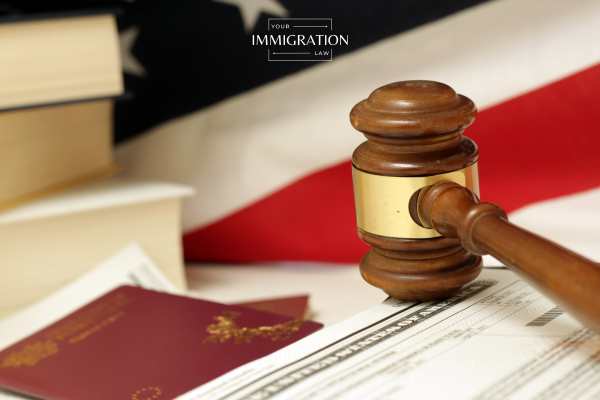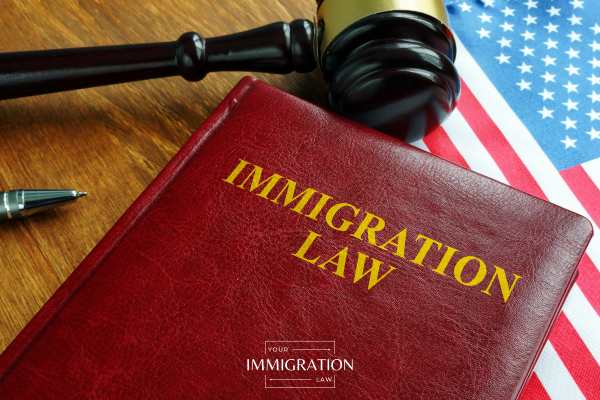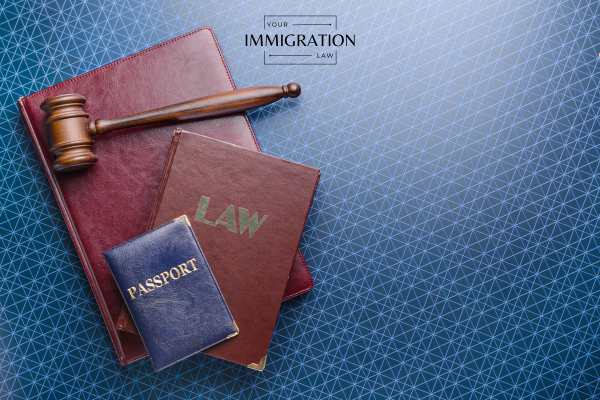Immigration waivers are like a second chance for people who want to come to or stay in the U.S. but have certain issues that make them inadmissible. If you’ve been denied a visa or green card because of a specific problem, one of the types of waivers can help you get approval. It allows you to show that, despite whatever issue you may have, you should still be allowed to come to the U.S., either because of your situation or the hardship it would cause if you couldn’t stay.
There are a few common reasons why someone might be considered inadmissible to the U.S. These include having a criminal conviction, breaking immigration laws (like staying too long on a previous visa), certain health problems that could pose a risk, or even being caught committing fraud. If any of these apply to you, it doesn’t mean all hope is lost—an immigration waiver can help you overcome these issues so you can still apply for a visa or green card for permanent residence. Call Your Immigration Law at 313-631-8080 to get started.
Why You Need an Experienced Immigration Waiver Attorney
The immigration waiver process can be pretty complicated, with lots of paperwork and rules to follow. That’s why it’s really important to have legal guidance from someone who knows the process well. Immigration lawyers can help you understand what needs to be done and make sure you don’t miss any important steps, giving you the best chance of success.
An attorney can make a big difference when you’re applying for an immigration waiver by helping you present a strong case. They know what evidence you need to show why you deserve the waiver and can help explain your situation in a way that makes it clear you should be allowed to stay. With their help, you can build a solid application to overcome the reasons for inadmissibility and increase your chances of getting approved.
Common Types of Immigration Waivers
Different types of immigration waivers can help people who are otherwise not allowed to enter or stay in the U.S. These waivers are designed for specific situations like if someone has a criminal record, overstayed their temporary visa, or has health issues. Each type of waiver helps give people a second chance to get a visa or submit a green card application and continue their lives in the U.S.

I-601 Waiver of Inadmissibility
The I-601 Waiver of Inadmissibility is available for people who can’t get a visa or green card because of problems like a criminal record, overstaying a visa, or other violations. If you’ve made mistakes in the past but still want to live in the U.S., this waiver gives you a chance to explain your situation and show why you should still be allowed to stay. With a grounds of inadmissibility waiver, you can ask the government to forgive those past issues and let you move forward with your immigration plans.
To qualify for the I-601 hardship waiver, you need to show that if you were denied, it would cause extreme hardship to a close family member who is a U.S. citizen or permanent resident, like a spouse or parent. This means proving that your family would suffer in a big way if you couldn’t stay, such as facing financial problems, emotional distress, or health challenges. You’ll need to gather documents like medical records, financial statements, and personal letters that show just how hard it would be for your family if you were forced to leave the U.S.
I-601A Provisional Waiver
The I-601A Provisional Waiver is for people who are in the U.S. without proper legal status and need to leave the country to apply for a visa. Normally, leaving the U.S. would trigger an "unlawful presence bar," meaning you could be banned from returning for several years. However, this unlawful presence waiver lets you apply for forgiveness of that bar before you leave the U.S., making it easier to return after your visa application.
To get the I-601A waiver, it’s super important to prove that if you were denied the waiver, it would cause extreme hardship to a family member who is a United States citizen, like a U.S. citizen spouse, or lawful permanent resident. This could mean showing that your spouse or parent would face serious financial or emotional stress if you weren’t allowed back into the U.S. after leaving. You’ll need strong evidence, like letters from doctors or proof of your family’s financial situation, to show why your family needs you to stay.
It is strongly recommended to work with an experienced immigration attorney for this type of waiver. They will help you to build your case and present it correctly to the consular processing officials.
I-212 Waiver for Prior Deportation or Removal
The I-212 Waiver is for people who have been deported or removed from the U.S. and want to come back legally. If you’ve been forced to leave the country because of immigration issues, this waiver gives you a chance to ask for permission to reapply for admission, so you can return to the U.S. with the right legal status. It’s like asking for a second chance to follow the rules and reenter the country.
To get the I-212 Waiver, you’ll need to meet certain requirements that show why you should be allowed to reenter the U.S. after deportation or removal. You have to prove that you’ve followed the law since being deported and that you have good reasons for wanting to come back, like having close family members in the U.S. or facing extreme hardship. People who qualify for this waiver need to show that they’re ready to follow the immigration rules and that being allowed back into the U.S. is important for them and their families.
212(h) Waiver
The 212(h) Waiver is for people who are not allowed to enter or stay in the U.S. because of certain criminal convictions. Criminal grounds that involve moral turpitude, which are serious offenses such as theft or fraud can all be included with this type of waiver. If you have a criminal record, this waiver gives you a chance to ask for forgiveness and still apply for an immigrant visa or green card, even though your past convictions would normally make you ineligible.

To file your waiver request, you need to show that if you were denied, it would cause extreme hardship to a close family member who is a U.S. citizen or lawful permanent resident, like a resident spouse, parent, or child. This means proving that your family would suffer financially, emotionally, or physically if you couldn’t stay in the U.S. You’ll need strong evidence, like medical records or proof of your family’s dependence on you, to show how important it is for you to be allowed to stay.
Waivers for Health-Related Grounds
Waivers for health-related grounds are for people who can’t enter the U.S. because of certain health issues, like having a communicable disease (one that can spread to others) or not having the required vaccinations. These health problems can make someone inadmissible, meaning they aren’t allowed to get a visa or green card. However, a waiver can help you get approval even if you have one of these health concerns.
Health-related waivers are available when you can show that your health condition can be treated, and managed, or that it won’t be a big risk to others. A lawyer can be really helpful in this process because they know exactly what kind of medical records or proof you need to show that you’re eligible for the waiver. They’ll guide you in gathering the right documents from your doctor and help you explain your case to immigration officials, so you have a better chance of having a successful waiver application.
The Immigration Waiver Application Process
The immigration waiver application process can help people overcome issues that make them inadmissible to the U.S., like past mistakes or health problems. It involves gathering important documents and explaining why you deserve a second chance to stay or enter the country.
Filing the Waiver Application
Filing an immigration waiver application starts with figuring out which form you need to use, like Form I-601, Form I-601A, or Form I-212. First, you’ll fill out the right form based on your situation, and you’ll need to provide all the required details about your background. After that, you submit the immigration application form along with any supporting documents and the filing fee. Your lawyer can help make sure everything is done correctly to avoid any delays. Once submitted, the U.S. Citizenship and Immigration Services (USCIS) will review your application and decide whether to approve the waiver.
To support your waiver application, you’ll need to gather important documents that prove why you deserve the waiver. This could include evidence of hardship for a family member, medical records if health issues are involved, or any details about your criminal history if you’re asking for forgiveness for a past mistake. Each document helps show that you meet the requirements and have valid reasons for needing the waiver. Getting all the paperwork together is crucial to making sure your application is strong and convincing.
Demonstrating Extreme Hardship
In the immigration waiver process, one of the most important things is proving that a family member who is a U.S. citizen or lawful permanent resident would suffer extreme hardship if the waiver isn’t granted. This helps show that your presence in the U.S. is crucial to their well-being, which can make a big difference in whether your waiver gets approved.
There are different types of hardships you can point to in your waiver application. For example, if your family member would face serious financial difficulties without you, has a medical condition or mental disorder that you help manage, or would suffer emotionally from being separated, these are all things that can be used to show extreme hardship. Each of these examples highlights the important role you play in your family member’s life.
An attorney can make sure your case is as strong as possible by helping you gather the right evidence, like medical records, financial statements, and personal letters. They’ll also help put together a persuasive argument that explains exactly how your family would be affected if the waiver isn’t granted. This makes sure all the necessary information is included to give your application the best chance of being approved.
How Long Does it Take to Get an Immigration Waiver?
The time it takes to get an immigration waiver can vary depending on the type of waiver you’re applying for and your specific situation. Some waivers can take several months to a year or more for the adjustment of status to take place. The waiting time depends on how busy USCIS is and whether they need additional information from you. It’s important to be patient, as each case is different and may take more or less time.

A lawyer can help keep track of how your waiver application is moving through the system and make sure everything is on schedule. If there are any delays or if USCIS asks for more information, your lawyer can step in to resolve issues and keep things moving. This way, you’ll know that someone is looking out for your case and helping to avoid unnecessary setbacks.
Can You Appeal a Denied Immigration Waiver?
If your immigration waiver is denied, don’t worry—you may have options. You can either appeal the denial, where you ask USCIS to review their decision again, or you can reapply with more evidence to strengthen your case. It’s important to figure out what went wrong the first time and make sure any missing information or mistakes are corrected.
A lawyer can be really helpful if your waiver is denied because they can explore other legal options, like filing an immigration appeal or finding another solution that might work better for your case. They can also represent you in front of USCIS or the immigration courts, making sure your argument is strong and that all the necessary evidence is presented clearly. With a lawyer’s help, you have a better chance of turning things around and getting the waiver you need as a foreign national.
Start Your Immigration Waiver Application
The immigration waiver process can be tricky, but having an attorney from Your Immigration Law by your side makes everything easier. They’ll guide you through each step, help you gather the right evidence, and make sure your case is strong.
Whether you’re applying for a waiver or appealing a denial, their support can make all the difference in receiving immigration benefits and keeping you and your family together in the United States. Reach out to Your Immigration Law firm today for the help you need with your immigration waiver.